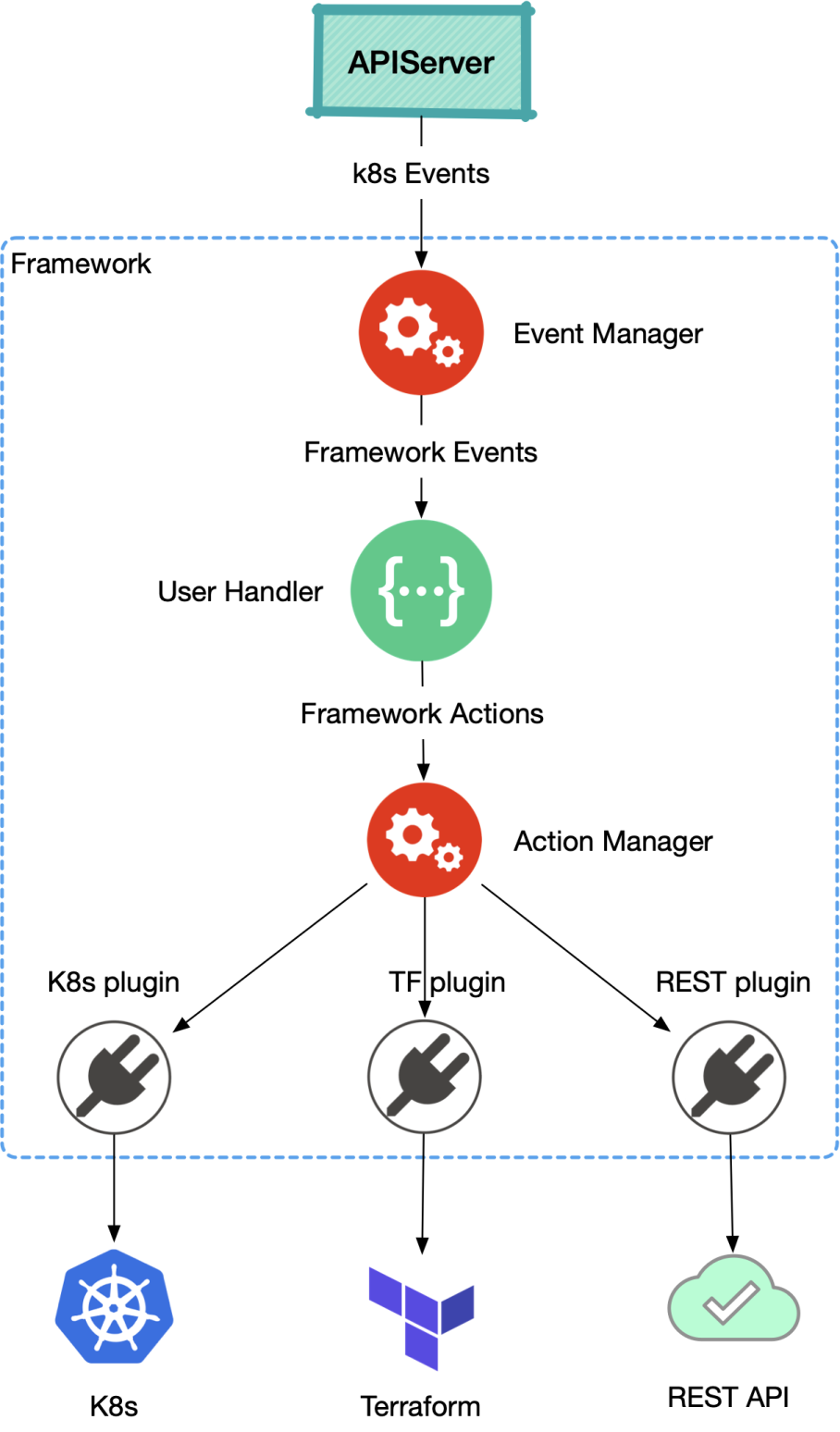oam-dev / Oam Go Sdk
Programming Languages
OAM Runtime SDK
NOTE: This SDK only support v0.1.x release of OAM specification (v1alpha1). For v0.2.x release (v1alpha2) please check KubeVela and its API lib repo kubevela-core-api as dependency.
The OAM Runtime SDK Project is a collection of go libraries and utility tools for building OAM runtime. With the SDK, we want to streamline and simplify building OAM runtime by achieving:
- Building new and converting to OAM API types easily.
- Reducing duplicate coding work via generating code scallfold and importing go library.
- Hiding low level details like k8s informer and providing high level abstraction to simplify user implementation.
Concepts
The SDK has the following major concepts that simplifies writing OAM code:
- Handler: A handler is an interface that must be user-implemented. The inputs and outputs are high level abstractions of events and actions.
- Event: An event is an encapsulation of change that triggers user handler. It could be events of k8s or other platforms (e.g. cloud MQ).
- Action: An action is an abstraction of declarative description of platform dependent operations. It separates concerns of high level user intention and low level platform details (e.g. client-go). In this way we have a modular system that provides reusable and pluggable actions.
The following diagram shows how they work together:
For more concepts in this SDK, please refer to concepts.md.
Getting started
There is an example implementation of OAM runtime using SDK in pkg/example/framework/main.go. We recommend reading the code as a starting point.
We could run the code and deploy OAM app by running following commands:
# turn on go module
export GO111MODULE=on
# install oam crds
make install
# run example
go run pkg/examples/framework/main.go
# deploy OAM component
kubectl apply -f examples/componentschematics.yaml
# deploy OAM app
kubectl apply -f examples/app.yaml
This example will create a deployment as Server workload.
There is another example which will show you how to build more extensions. Read the doc for more details.
Misc.
oam-runtime contains many utilities to help you implement oam runtime easier:
-
finalizer
-
status check
-
spec equal check

